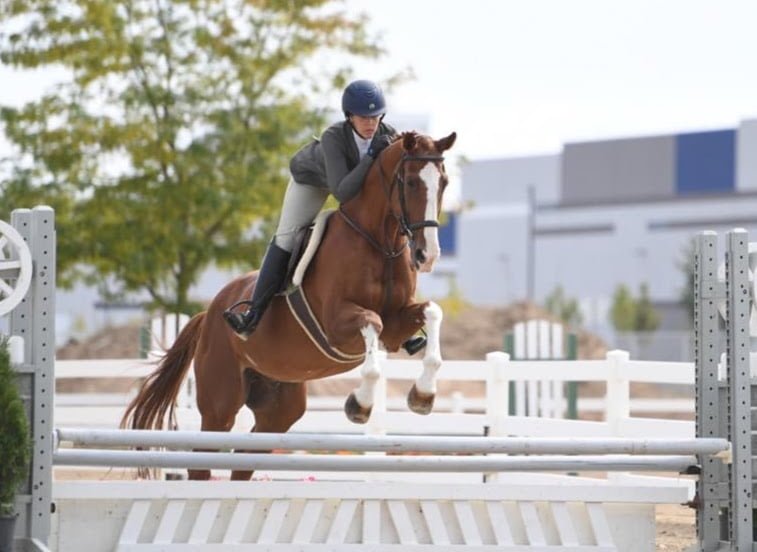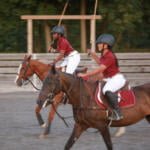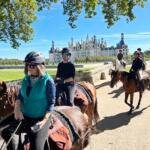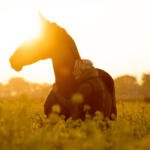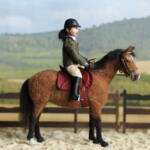When Andrea Willden was diagnosed with multiple sclerosis in 2017, she decided it was time to fulfill her goal of training horses professionally. Since then, this tough and dedicated equestrian has built on the legacy she inherited from her childhood trainer and created a thriving and supportive barn community.
We spoke with Andrea about how she got where she is today, how she manages MS along with a demanding training and show program, and what she’s learned about building a successful equestrian business.
This interview has been edited for length and clarity.
BRU: What first drew you to horses and what disciplines have you participated in?
AW: I started riding at three years old with my current trainer, Kari Swainston. I remember that I rode her old horse Red at my first lesson.
I’ve always done hunter jumpers. I was on my college equestrian team, and after that, I did reining for about five years, but I still went back to jumping. I can’t explain it—it’s just what I’ve always loved.
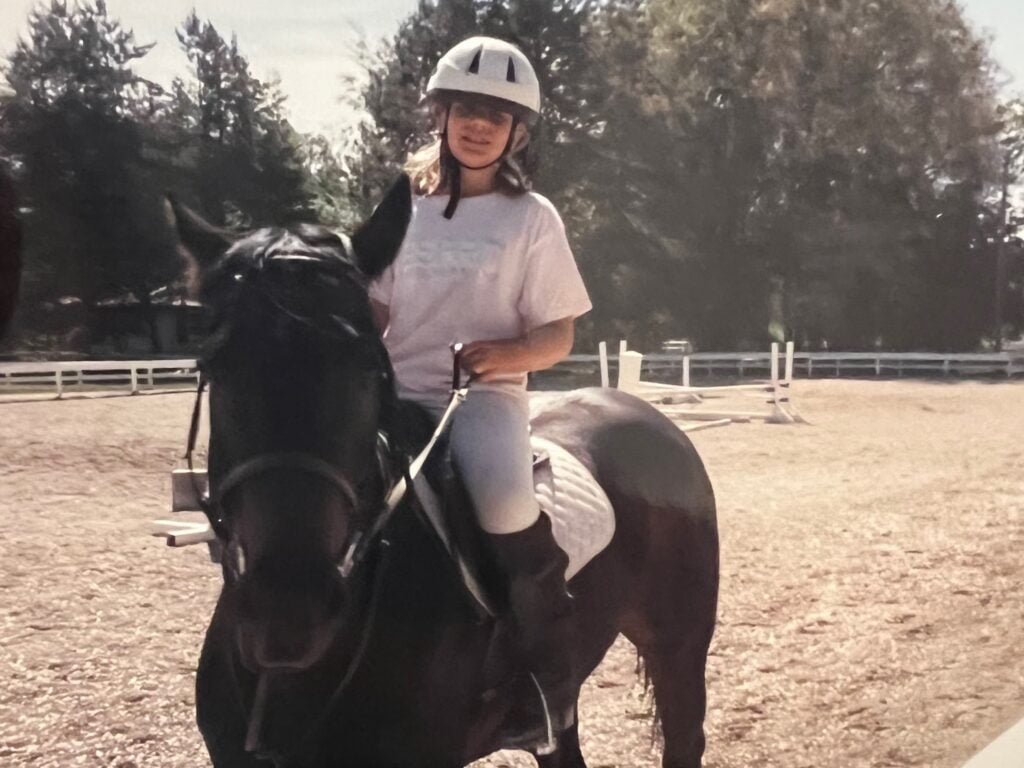
BRU: What made you want to become a professional?
AW: I leased a horse and started competing when I was ten, and three years later, my parents bought me a green horse that knew absolutely nothing. So, Kari taught me a ton about how to train and work with my horse.
Then, I became Kari’s intern during high school, and I got to help her produce horses from the ground up. That’s when I realized I wanted to do this as a career.
Unfortunately with training, you usually either have to be born into it or have money, and my dad said, “Right now, that’s neither. You better have a backup plan.” So I went into the medical field for a long time. I enjoyed it, but it wasn’t my ultimate goal.
BRU: When did you decide to switch gears and go back to your original plan?
AW: I started my training business about a year after I was diagnosed with MS. MS is a progressive disease, and there’s nothing to stop it. You never know if your next flare will cause temporary disability or permanent disability. I wanted to fully enjoy my career while I could. So, it was a no-brainer. I decided, “Screw it—we’re going to do it.”
I already had a horse of my own, and I’d just bought a green project horse. I’d had several people ask me if I would teach riding lessons, and then I took on a couple of other horses to train.
When I started my business, I still worked in the medical field full-time and trained in the evening, but I eventually decided to leave that job and train exclusively. The business has just grown exponentially from there.
I trained out of boarding facilities at first, but that came with various issues. I came home one night, and my husband was so tired of hearing me complain about it that he said, “Either I don’t want to hear about it, or we just need to buy our own place.”
So, we bought the property where we live now and moved the business here. That was my biggest requirement—if we owned a facility, I wanted to live on the property. We’re constantly doing projects to make it exactly how we want it.
BRU: What’s it like balancing your business and MS? Is there anything you approach differently?
AW: I definitely have to adjust. I’m very transparent about my MS with my clients so they don’t wonder why I may have to reschedule. Having an open line of communication has helped a great deal.
I’m very conscious of how I exert my energy, and my team is also aware of that. I have feeders and stall cleaners who help. The majority of the time, my team handles any extra tasks so I can use my energy where it’s most beneficial.
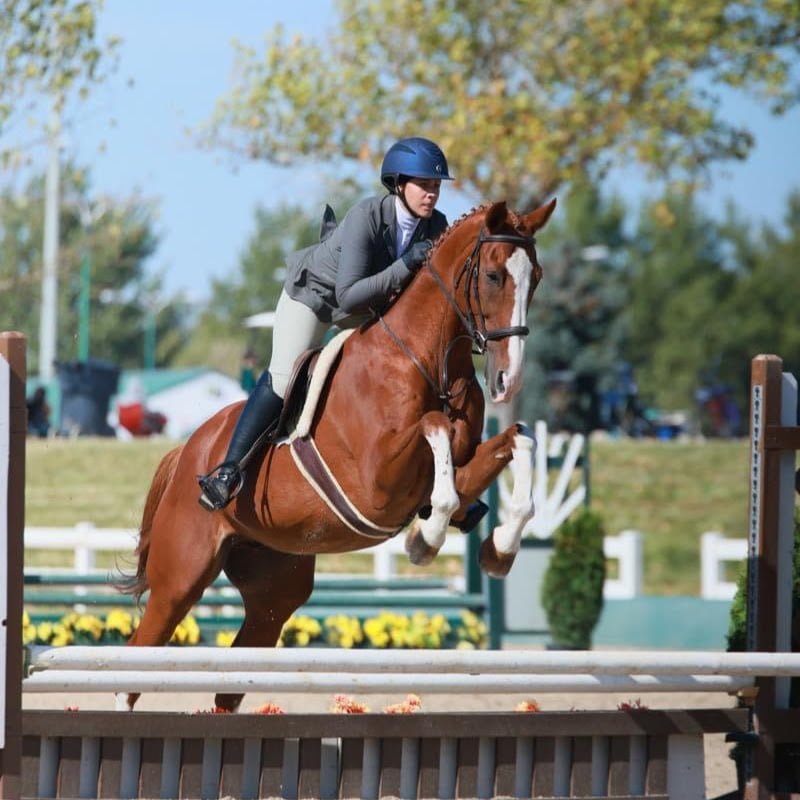
BRU: Have there been any horses that you give special credit for teaching you along the way?
AW: When I was younger, there was a horse named Velt who only certain people could ride, and I was one of them. He was a typical fiery jumper and the first horse I jumped four-foot on. He taught me a lot because of the type of ride that he was, and I’ll never forget him because he was absolutely crazy too. (laughs)
My first horse, Izzy, taught me how to be a versatile rider. She was about eight when we got her, and she knew nothing—she was set in her ways. We eventually showed in the junior hunter medals and jumper medals, and we excelled. It was insane to get to be a part of that.
BRU: What sort of difference has your trainer and horse community made in your life?
AW: My trainer, Kari, basically raised me. She and her husband, Lon, are like my second parents. She’s such a strong human being.
Being a part of her experience and watching the growth and transformation of her program has influenced me a great deal. She’ll always be my trainer and mentor. She’s so willing to help, and I admire her tremendously.
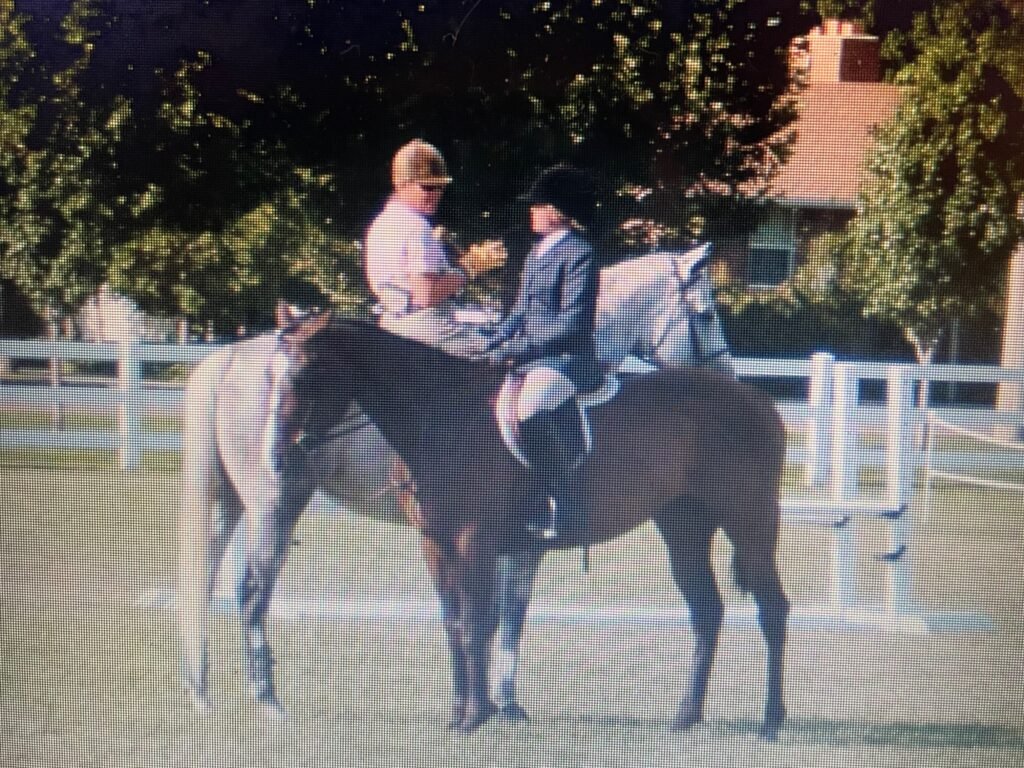
BRU: What do you love most about being a trainer yourself?
AW: I love seeing horses progress. Especially after the tough days when they’re being difficult, and it’s like, “Oh my gosh, what am I doing?” Seeing them learn over time is super rewarding.
It’s the same thing with new riders or horse owners, too—watching them bond, learn to communicate, and build a relationship with a horse is awesome.
BRU: Is there an aspect of horse education that you feel particularly passionate about?
AW: I like getting into the deeper details of proper horse care. Not everyone understands how much effort, money, and energy it takes to be a horse owner.
It’s not just about being a rider and competing with your horse. It’s understanding everything from health and nutrition to farrier needs. There are so many things in basic horse care alone that a lot of people overlook or have no idea about.
BRU: Do you have any ideas about what people can do to support beginners or increase access to horses?
AW: I think it’s important for parents to be involved and bring their young riders to lessons consistently. You can’t build skills with inconsistency. If your kid is showing interest, invest the time it takes to learn.
I also wish more places had lesson programs. I understand why a lot of trainers don’t because I’ve got one, and it’s not easy! But barns that do have lesson programs usually have long wait lists because there aren’t enough of us. It would be nice to see the community grow.
BRU: Do you have any advice for other equestrians who want to eventually work as professionals?
AW: Make sure you know what you’re getting into financially, emotionally, mentally, and physically. It takes a lot, and it becomes your life. There’s no such thing as days off. There’s always something happening or something that needs to be done.
You have to consider the office and bookkeeping side of things too. It’s like running one big corporation, and you’re in control of every single aspect of it. Make sure you know what you’re getting into. Make sure you understand the workload.
BRU: Is there anything you’ve found helpful for balancing the workload and keeping it from dragging you down?
AW: I had to set boundaries. I got to the point where it was my day off, but I still ended up at the barn working anyway. I had to learn how to step away and let others know not to message me unless it’s an emergency so I’m able to disconnect.
BRU: What have you learned from horses, and what do you think they can teach others?
AW: Horses teach you humility and patience. If you can’t handle building patience, you probably shouldn’t own a horse, especially when you’ve got a young green one. You can’t rush things. You learn to take a step back and say, “This is where we’re at, and it’s okay.”
To learn more about Andrea, visit A.R. Willden Show Stables online or connect with her on Facebook or Instagram.
Want to nominate someone for a feature interview? Please get in touch!

